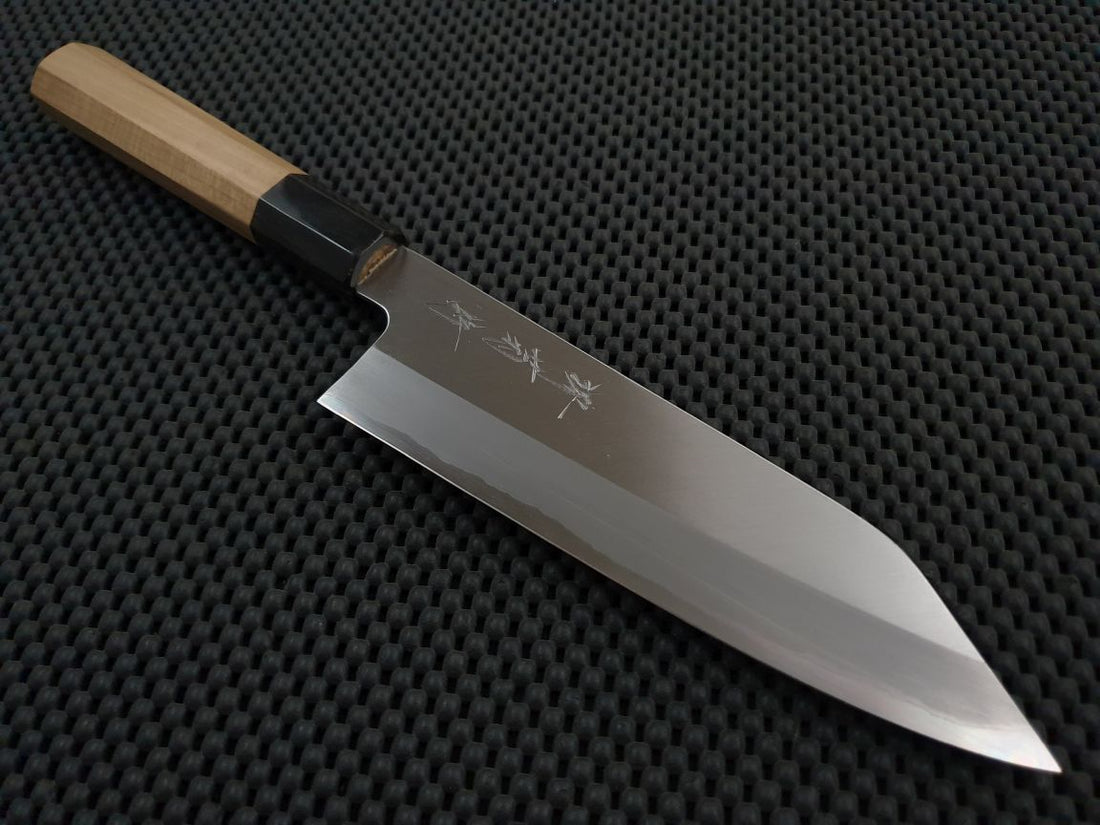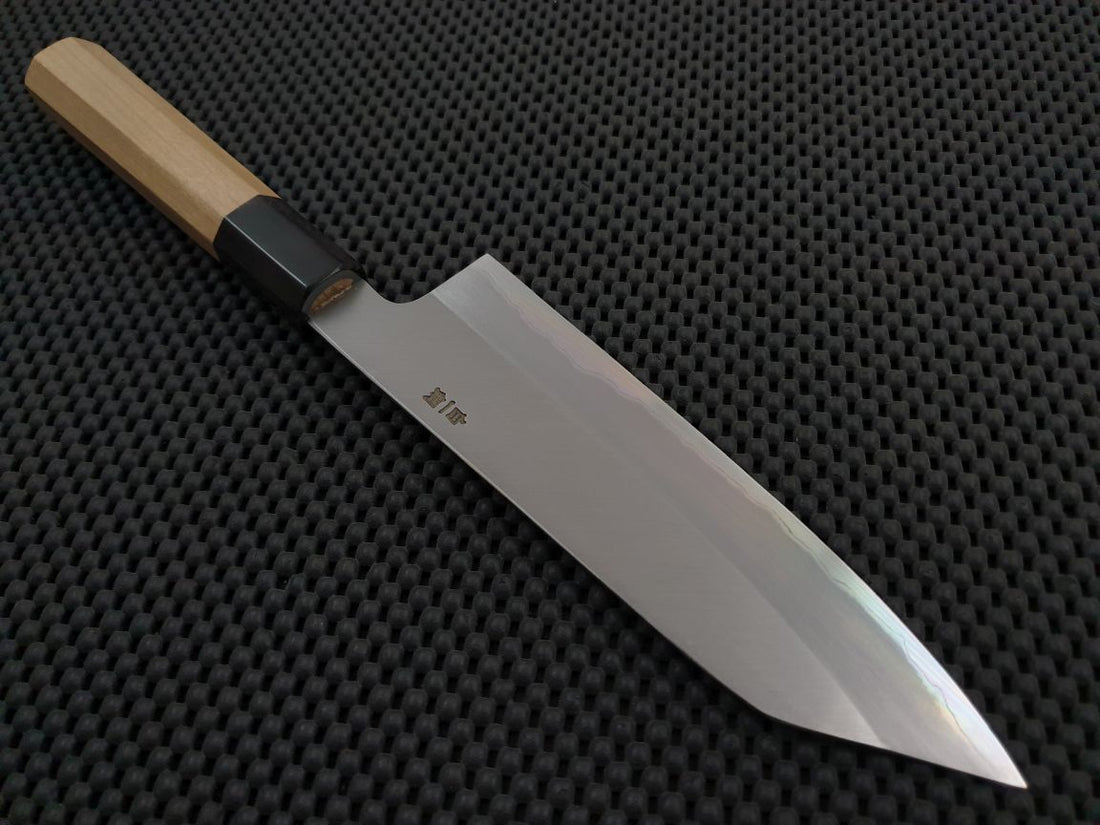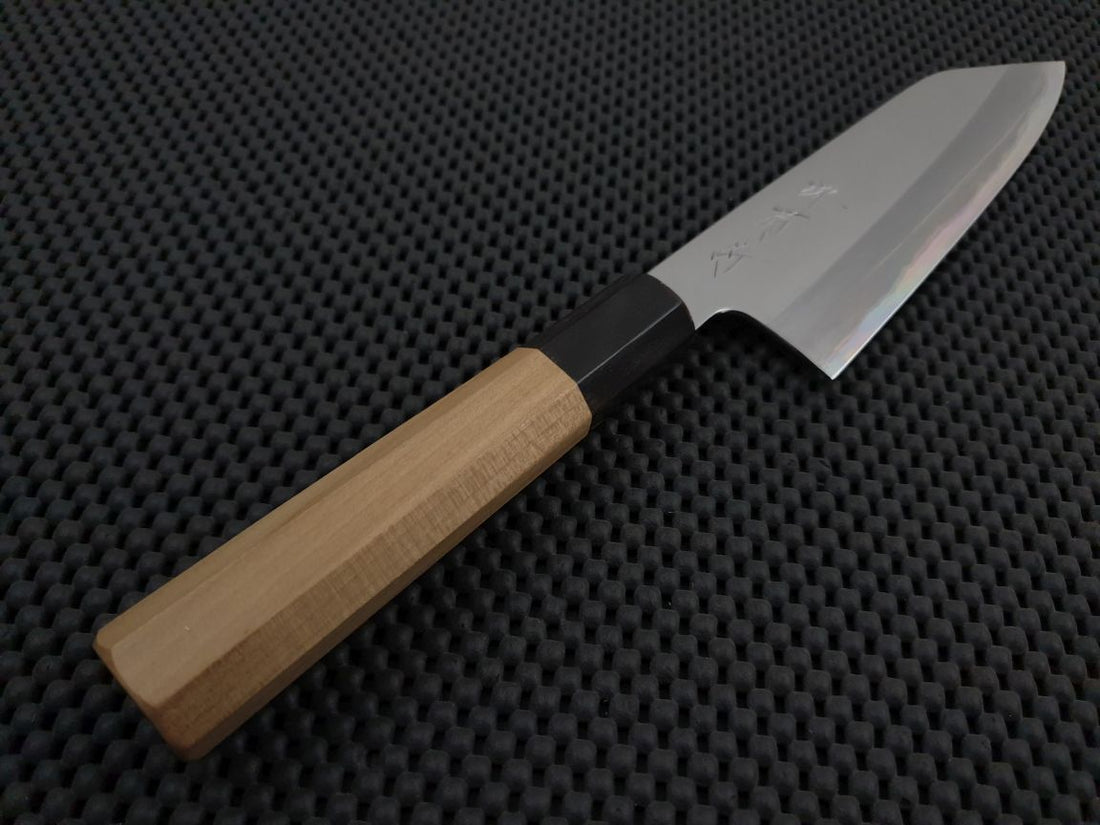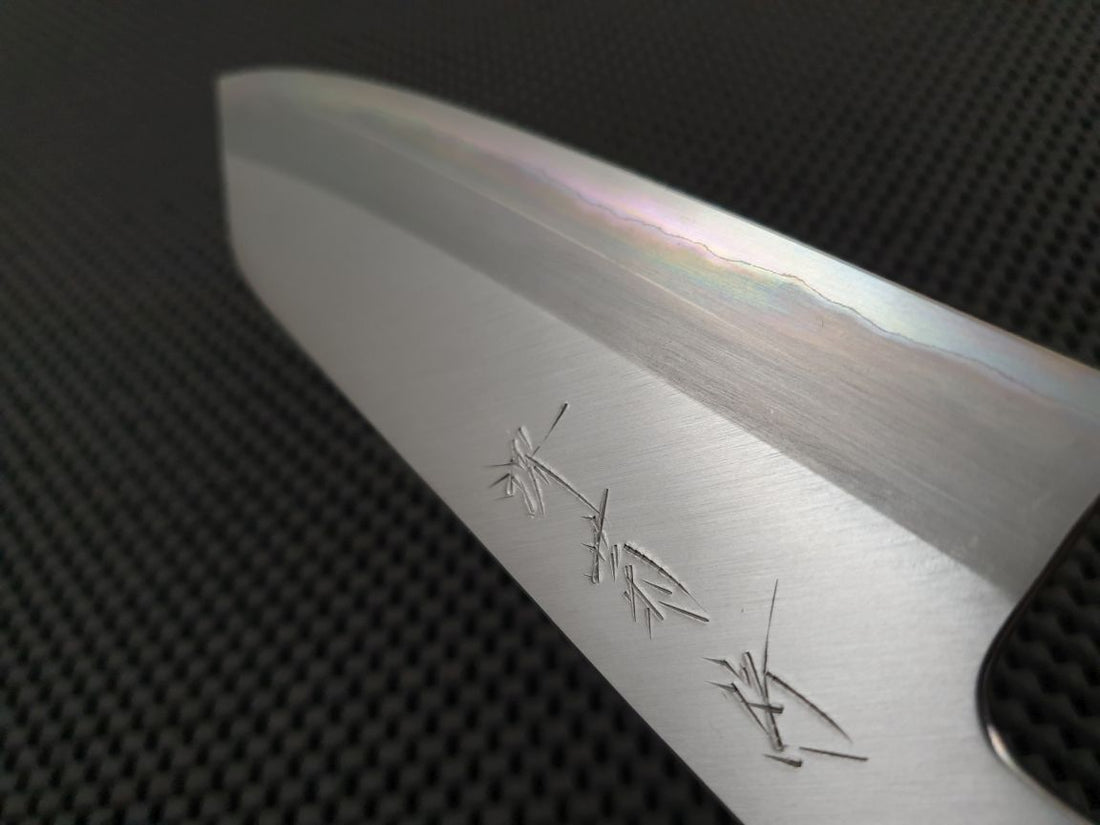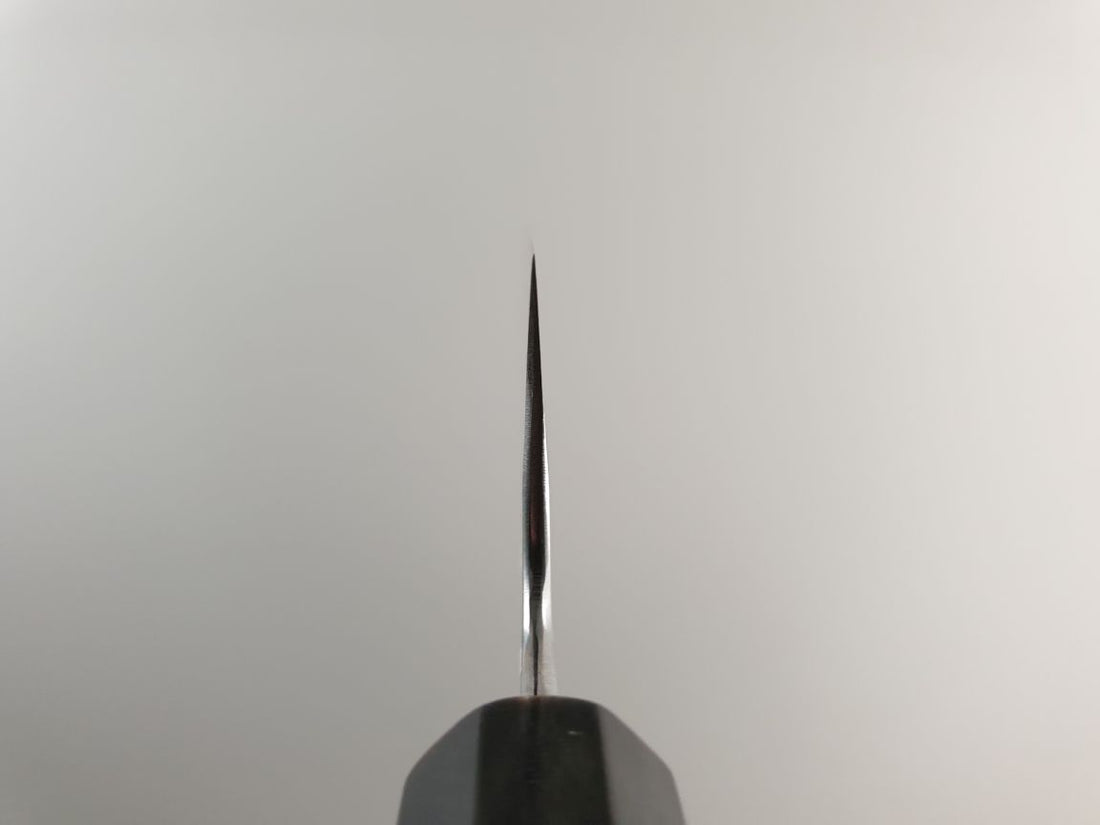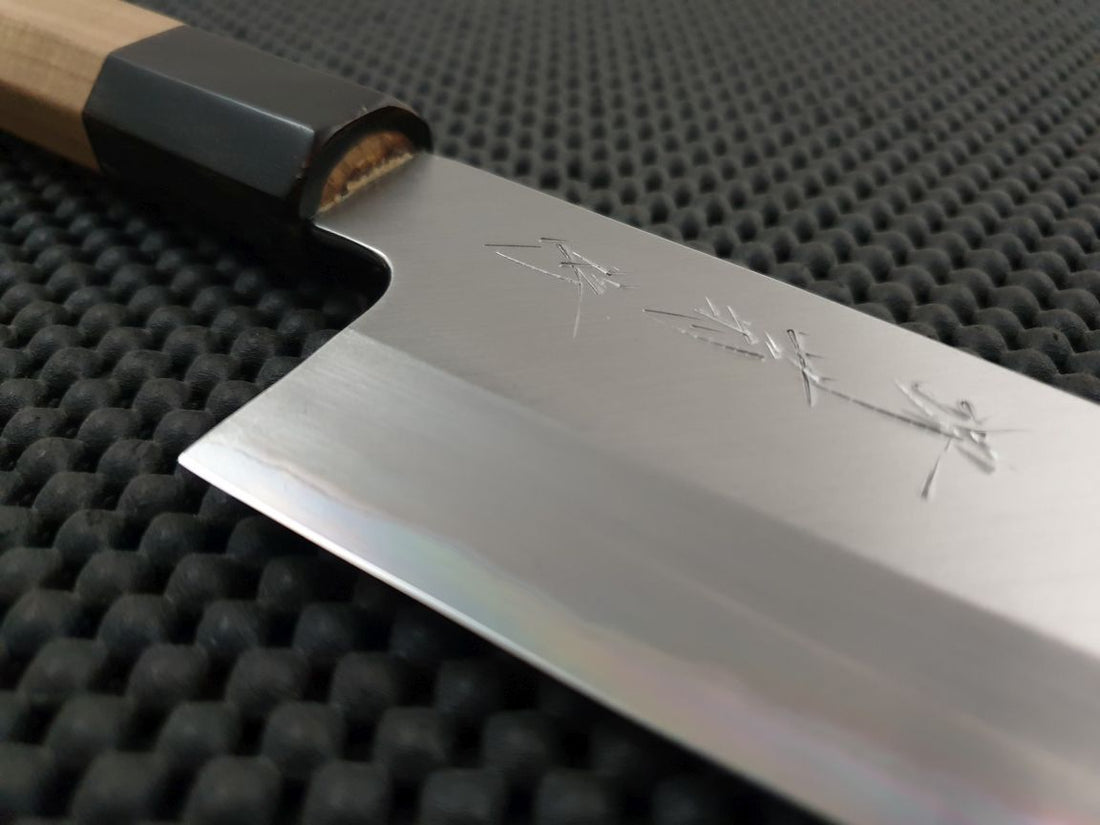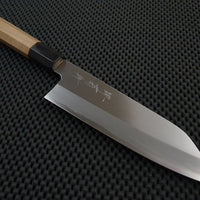
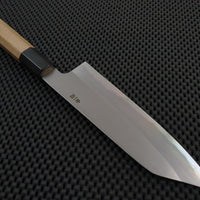
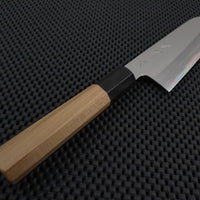
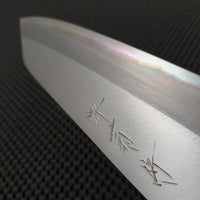
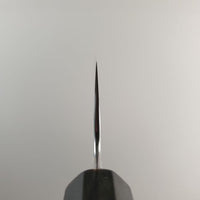
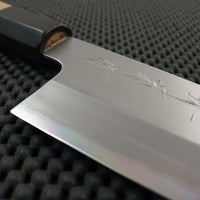
Hand-crafted by Satoshi Nakagawa for Sakai Kikumori, one of our favourite steel combinations; Shirogami 1 Stainless clad.
Grind (and price bracket) are the perfect middle ground before stepping up to knives approaching the $1000 mark.
- Sakai Kikumori Kitchen Knife
- Satoshi Nakagawa Blacksmith
- Sakai, Japan
- 180mm Kiritsuke Santoku Knife
- White (Shirogami) #1 Steel, Soft Stainless Clad*
- Magnolia Wood Handle, Buffalo Ferrule
- Hand-Crafted in Japan
- Edge Length: 168mm | Overall Length: 311mm | Blade Height: 48mm | Weight: 134g
- Blade Thickness: (A) 3.3 (B) 2.3 (C) 0.6

* As our Japanese chef knives are hand-made, small variations in size and appearance may occur, and measurements and images are a guide only.
* High-carbon steel (found in the core / edge of this chef knife) will change colour (patina) during use, care is required to prevent surface rust.

Japanese Kitchen Knife | Santoku (Home Cook Knife)
Like it's larger cousin, the Gyuto, this is your go-to knife for any and all tasks within the kitchen. Generally Santoku knives are smaller in size than Gyuto, making them versatile in smaller home kitchens or for cooks with fledgling knife skills. Both styles of knife are multi-tasking machines that can be used for any and all cooking preparation tasks.
As is the case with most Japanese kitchen knives, the Santoku is thinner & lighter than other western chef knives, they are normally made from harder steel which can hold a sharper edge.

